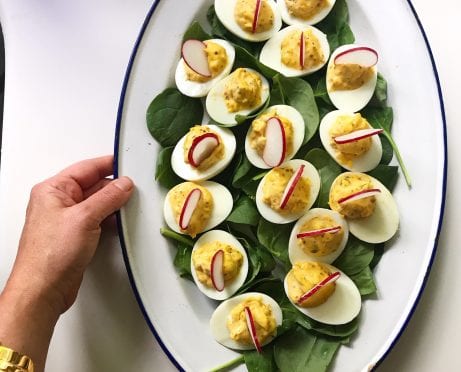
For quite some time now, I’ve been enamored with the idea of buying my own home. I’ve moved four times in the last five years, and I’ve always lived with roommates. As I reach the end of my twenties, I’m ready to take the next step in adulthood and find a place of my own. But how could I afford it, and how could I save money fast?
Why I Want to Own a Home
Since paying off my student debt two years ago, I’ve been focused on building financial stability. I’ve built up an emergency fund, started investing steadily, and created multiple streams of income.
Owning a home is the next step in financial stability for me, but buying a house takes a lot of cash up-front.
You need a steady income so that you can meet your mortgage payments. It’s a 15- to 30-year commitment.
I’m in a long-term relationship, and my partner and I are both interested in buying a house. So now we need to get down to the serious business to saving for the down payment.
How to Save Money Fast: My Down-Payment Savings Plan
I want to put down at least 20 percent as down payment so that I can avoid having to pay for private mortgage insurance or PMI. (Lenders require PMI from homebuyers who put less than 20 percent down. For them, it’s an added level of security against foreclosures.)
My partner and I are looking at homes in the $250,000 range, so if we each save $25,000, we’ll have enough for a 20-percent down payment. Now here’s the good stuff: How exactly am I going to save $25,000 in one year?
Save Money Quickly by Keeping Living Expenses Low
The most important part of my savings plan is to keep my living expenses as low as possible. In pursuit of a big goal like buying a house, I’m happy to tighten my belt for a year.
I live pretty frugally already, but my plan is to keep my living expenses between $1,300 and $1,400 a month over the next year. My expenses include rent, utilities, food, gas, car insurance, health insurance, and health-related expenses like doctor’s appointments.
For special occasions — like my partner’s birthday or our anniversary — I’m happy to splurge on a meal out. Otherwise, I plan to eat every meal at home over the next year.
I’ll also cut back in other areas by biking more than I drive, keeping the thermostat low, and canceling a few subscription services. (Goodbye, Hulu!) But I’m still keeping Netflix. I’m not crazy!
I’m also planning to skip vacation for a year, which will be a big source of savings for me. I usually spend about $4,000 a year on vacation, traveling for weeks at a time. I won’t be going anywhere in 2018.
It sounds kind of hardcore when you write it out, but these are all things that I’m happy to skip for a year. I think often of the saying, “Don’t trade what you want most for what you want right now.” What I want most is to own a home, and to be as financially prepared for it as possible.
Here’s a breakdown of my monthly spending:
- Rent (which I split with my partner): $550
- Utilities (including internet — also split with my partner): $75
- Groceries: $50
- Gas: $20
- Health Insurance: $166
- Netflix: $11
- Car insurance: $600 annually (I pay $300 twice a year)
- Coffee shops: $20
- Parking: $10
- Therapy: $210
- Random expenses: $200
Not including my bi-annual car insurance, that brings my monthly expenses to just over $1,300.
Earn More Money and Save the Extra Cash
The second part of my savings plan is to earn more money. I’m no stranger to side hustles, and I’m ready to dedicate some of my time towards one again.
I plan on working at $17 an hour (post-tax wages) to earn some extra cash over the next year. This side hustle should bring in about $10,000 extra. It’s seasonal work, so there will be high seasons and low seasons. I like that because it means that I have downtime built into my schedule. I can recharge during the months when work is slow.
After all, I don’t want to burn out in pursuing my goal!
I also don’t want to take a year off from investing, so a side hustle that brings in $10,000 will allow me to meet both my investing and my down-payment goals.
The Bottom Line
I want to own a home as part of a larger financial portfolio. For me, my house is an asset that I can leverage to generate cash by renting out rooms for a few years.
This way, renters will essentially be paying my mortgage, and I can direct all my extra cash into my savings and investment accounts. After my investments hit the level I want, I can turn my home into my oasis. No need to rent it out anymore — my home can exist just for my partner and me.
It is totally possible to save money quickly, but you have to be ready to make a plan and commit to it.










